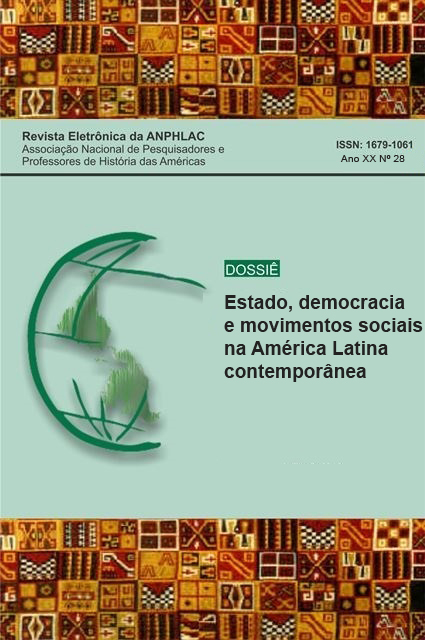Haiti, MINUSTAH and democracy: the technique of biopolitical government in the United Nations operation
DOI:
https://doi.org/10.46752/anphlac.28.2020.3845Abstract
Abstract: This work proposes to analyze the United Nations Stabilization Mission in Haiti (MINUSTAH) as a mechanism of biopolitical government and continuity of practice by nations considered to be major western powers to intervene in Haitian political processes since their independence, in 1804. For this end, we developed a bibliographical analysis on the subject, as well as analysis of documents of the United Nations and other institutions involved in the operation and the Brazilian government. By approaching the concepts elaborated by Michel Foucault, the work presents the different techniques of government – such as state racism, police device, and discipline – used by foreign countries in interventions in Haiti, during the nineteenth and twentieth centuries, to prescribe conducts to the Haitian state and individuals. In addition, we point out the interests of Brazil in commanding the military face of MINUSTAH.
Key words: MINUSTAH. Biopolitics. State racism.
Downloads
Downloads
Published
How to Cite
Issue
Section
License
a. Cessão de direitos autorais
Venho, por meio desta, ceder em caráter definitivo os direitos autorais do artigo "____________", de minha autoria, à Revista Eletrônica da ANPHLAC e afirmo estar ciente de que estou sujeito às penalidades da Lei de Direitos Autorais (Nº9609, de 19/02/98) no caso de sua infração. Autorizo a Revista Eletrônica da ANPHLAC a publicar a referida colaboração em meio digital, sem implicância de pagamento de direitosautorais ou taxas aos autores.
b. Declaração de ineditismo e autoria
Atesto que o artigo ora submetido à Revista Eletrônica da ANPHLAC, intitulado "________________________", de minha autoria, nunca foi publicado anteriormente, na íntegra ou em partes, dentro do país. Vindo a ser publicado na Revista Eletrônica da ANPHLAC, comprometo-me a não republicá-lo em qualquer outro veículo editorial.






